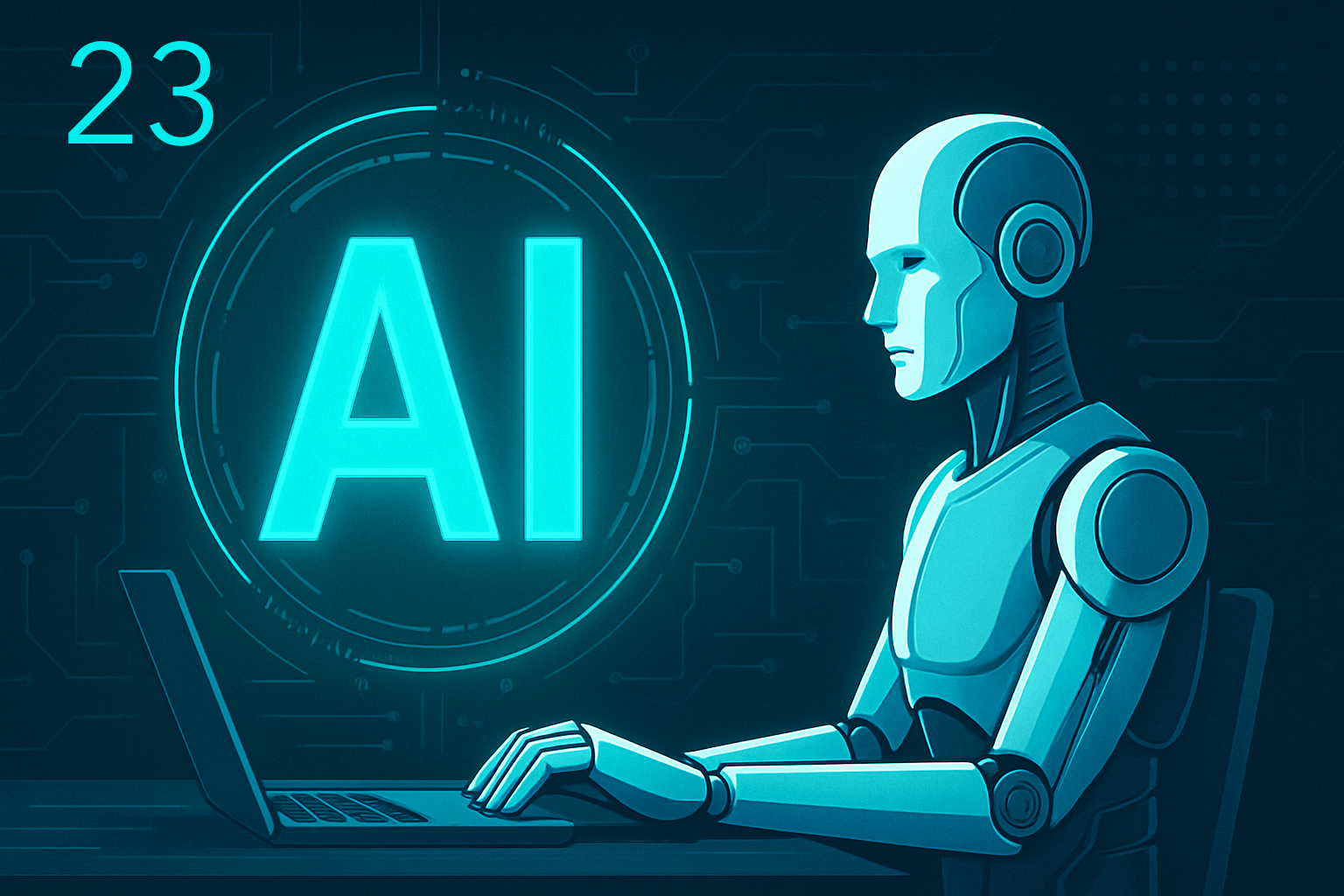
AI News Week 23
Top 5 AI News Stories from Week 23
The AI landscape is continually evolving, shaping industries, and altering the way we interact with technology. This week has seen some significant developments that could have long-lasting implications. Here’s a summary of the top five AI stories you need to know.
1. OpenAI Launches GPT-5: A New Era of Language Models
OpenAI has officially unveiled GPT-5, its latest language model, which promises improved contextual understanding and a significant reduction in biases. The model reportedly integrates advances in both natural language processing and machine learning efficiencies.
Why it matters: As the most advanced iteration yet, GPT-5 may redefine applications in content creation, software development, and customer service. Its enhanced capabilities could lead to more intuitive AI interactions, paving the way for greater adoption across various sectors.
2. Google DeepMind Introduces AI for Drug Discovery
Google DeepMind has announced a breakthrough in using artificial intelligence for drug discovery, significantly accelerating the process of identifying potential new medications. Their AI model can analyze biological data to predict how different compounds interact with targeted diseases.
Impact: This advancement could shorten the drug development timeline from years to mere months, potentially bringing life-saving medicines to market faster. It raises critical questions about the role AI will play in healthcare, especially regarding ethical considerations and regulatory frameworks.
3. Meta’s AI Research on Emotional Recognition
Meta Platforms has released a new study highlighting the use of AI in accurately recognizing human emotions through facial expressions and vocal tones. This innovative research could lead to enhanced social AI applications, particularly in virtual reality environments.
What’s next: With the potential for applications in gaming, mental health support, and customer service, Meta’s findings underscore ongoing concerns about privacy and emotional manipulation in AI technologies. Stakeholders will need to navigate these ethical challenges as they push forward.
4. European Union Proposes Comprehensive AI Regulations
This week, the European Union took a significant step toward regulating artificial intelligence. The proposed legislation aims to create guidelines for AI use, ensuring transparency and accountability, especially in high-risk applications such as surveillance and law enforcement.
Why it matters: As AI adoption grows, so does the need for a framework that balances innovation with ethical considerations. The EU’s proactive stance could influence global standards and prompt other regions to develop similar regulations, reshaping the AI landscape.
5. Startup Spotlight: AI-Powered Education Solutions
A new startup, EduAI, has emerged with an innovative platform that uses AI to personalize learning experiences for students. By analyzing individual progress and learning styles, it tailors content to meet each user’s needs.
Impact: This evolution in educational technology could revolutionize how students engage with learning materials, offering a more customized approach. As educational institutions consider technology integration, EduAI may set new standards for academic success and accessibility.
Conclusion
This week has highlighted transformative advancements and critical discussions in the AI domain. From groundbreaking models and healthcare innovations to regulatory moves and educational solutions, these stories illustrate how AI is continuously shaping our world. As we move forward, staying informed about these changes will be essential for both professionals and enthusiasts alike.